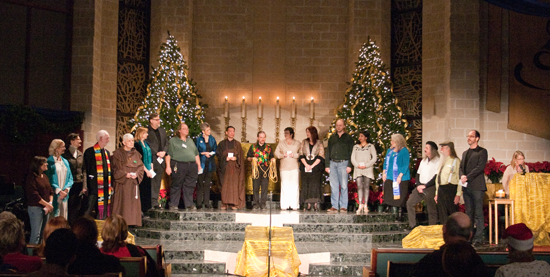Texas Faith: Is Christmas a religious holiday or a cultural one?
TEXAS FAITH: Is Christmas a religious holiday or a cultural one?
Editor’s Note: This entry marks my last one as co-moderator of this wonderful blog. As this column explains, I am making a move to the George W. Bush Institute. After getting settled, I look forward to becoming a panelist and contributing answers. Meanwhile, Happy Holidays — and Merry Christmas — to all our readers.
A new Pew Research Center Religion and Public Life survey reports that 90 percent of Americans — or almost all of us — celebrate Christmas in some fashion. The study shows that most still view it as a religious holiday, but certainly not all. In fact, only a slim majority consider it a religious holiday.
Interestingly, there appears a sharp generational difference in the way Americans see Christmas. According to Pew, Americans under age 30 are far more likely to see Christmas as a cultural holiday. Likewise, they are less likely to attend religious services at Christmas or to believe in the Virgin Birth.
The survey also reports on the similarities in the ways Americans celebrate Christmas. Most of us observe the holiday with families and friends.
You can read more about Pew’s Christmas survey at this link.
And here’s the question for this week:
How do you view Christmas: Is it a religious holiday or a cultural one?
And, if you like, share how you plan on observing the day, if it is one you will observe.
Read on for a variety of answers from our panelists: Read Panel
AMY MARTIN, Director Emeritus of Earth Rhythms and Writer/editor Moonlady News Newsletter
I wonder what a human in the Neolithic Era would think of such a question, spiritual or sacred?
Winter Solstice has been shaping and identifying the winter holiday season in the Northern Hemisphere since 10,000 BCE. We observed and honored the forces greater than ourselves with ceremonial circles around giant bonfires and henges made of wood, stone and shell that marked the solstices, equinoxes and lunar cycles. When we gathered in abodes strewn with evergreen boughs, we consumed mass feasts and traded objects like crazy, and children were given a break from their chores.
Some things never change.
Deep and universal are the metaphors of Winter Solstice: the regenerative powers of darkness and the redemptive grace of light, submission in humility before the mystery of life, faith in the continuance of spirit. Metaphors of Winter Solstice are so strong that the Christian church set in the mid of winter the holy day of Christmas which obviously belongs in the spring and summer when shepherds are in fields with their flocks.
The problem is polarity. Let the darkness of this season soften the boundaries that only keep us apart.
See yourself not as a Christian, Jew or other faith, but as a human with a heritage that spans eons. Step away from the need to possess something as un-ownable as a holiday and celebrate instead the highest common denominators we all share, spiritual and secular alike.

